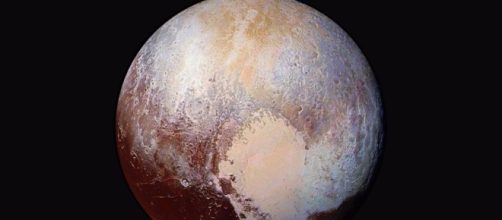NASA researchers have published a manifesto proposing a new definition of planets, according to sciencealert.com. If their proposal is accepted our Solar System would have more than 100 new planets, including Pluto and the Moon.
Redefining planets
The team hopes to receive approval for the new definition. According to this new definition the celestial bodies in our Solar System don't have to orbit around the Sun to be considered planets. Experts argue that the physical properties of celestial bodies should be more important than their interaction with other stars, notes Science Alert.
Scientists say they have proposed a geophysics definition based on the importance of the physical properties of the space objects.
Pluto not a planet since 2006
Pluto lost its "planet" status in August 2006 when the astronaut Mike Brown proposed that the definition of planets be redefined. The International Astronomical Union (IAU) said that a planet is a celestial body that is orbiting the sun, and that it has enough mass to be in hydrostatic equilibrium -- a nearly round shape -- and it "cleared the neighborhood of its orbit." Under the new regulations Pluto could no longer be considered a planet.
Alan Stern, the astronomer who studied the dwarf Pluto wants to rewrite the definition of a planet.
He and his colleagues' manifesto was sent to IAU for validation. Stern says they propose the following definition of a planet to be used by professors, researchers, students, and the entire public: a round object from space that is smaller than a star.
The Moon could be considered a planet
According to this extremely simple definition proposed by Stern, Earth's moon and other moons in our solar system, would acquire the status of planets.
The renaming must be approved by the International Astronomical Union
Nothing can be changed until the International Astronomical Union decides to rewrite the definition of a planet. Even if their definition is accepted in the end, there will be much debate surrounding the topic.

